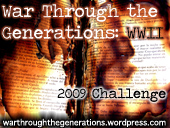 When I was in college, I took a fascinating class in sociology. A certain idea I learned really stuck with me, and kept coming back to me as I read this book. The gist of it is this: each child in a family is born into a different family than their siblings were - since the family changes every time someone new joins the family or as circumstances change within the family. This different family that the child is born into will shape and define him/her in a way that is not the same as sibilings born before or after.
When I was in college, I took a fascinating class in sociology. A certain idea I learned really stuck with me, and kept coming back to me as I read this book. The gist of it is this: each child in a family is born into a different family than their siblings were - since the family changes every time someone new joins the family or as circumstances change within the family. This different family that the child is born into will shape and define him/her in a way that is not the same as sibilings born before or after.The two sisters Vera and Nadezhda (our narrator) are a classic example of this. Vera was born in war-torn Ukraine, ten years before Nadezhda, while Nedezhda spent most of her early years in stable England. Life was very difficult for their Ukrainian parents - we learn much of their hard history throughout the book as different things come to light for Nadezhda, and she must re-learn what she thinks she knows about her immediate family and why they behave the way they do.
With her mother dead, Nadezhda's family is more than a little dysfunctional - she and her sister aren't on speaking terms, but they have to band together when their elderly father decides to marry a much younger Ukrainian woman, who seems to be marrying for reasons other than love. The story follows the relationship between the father (Nikolai) and Valentina (the younger woman), the sisters' attempts to thwart the marriage as well as their father's process of writing a book on the history of tractors and their relationship with the modern world.
The book grabbed me from the beginning - although parts made me feel in turn sad, mad, and uncomfortable. The things that are humorous in the book often have to do with the limited English and generally foul methods of Valentine or with the parts of men's bodies that fall apart during old age - not something I think about so much. In fact, besides Gilead by Marilynne Robinson, which is of a far more spiritual nature, I think that this may be the first book I've ever read that deals with the issue of aging and caring for the aged and the rights of the elderly.
A Short History of Tractors in Ukrainian is different than any book I've ever read. Nikolai's book about tractors is printed in parts throughout the text and he brings up some very important points about the impact of the tractor in the Ukraine and around the world - and how its misuse and its transformation into war machinery influenced the destiny of the Ukraine. I feel like I have a much greater understanding of the country of Ukraine and its past and current struggles. For those interested in generational issues as well as, especially, those who love world literature and the interactions between cultures, this book is worth reading.
































4 comments:
you finished it??!! WOW, look at you!! I have a fear of reading reviews that are for the book I am currently reading...so I will hold off for a couple of days, but when I am done I will have at it!!!! Great job yo!
I can't believe you are done already. I'm impressed!
Sounds like an intriguing book. I don't know very much about Ukraine, but this seems like a good place to start. I wasn't a big fan of Gilead...
Trish - yeah, this is NOTHING like Gilead. At all :)
Post a Comment